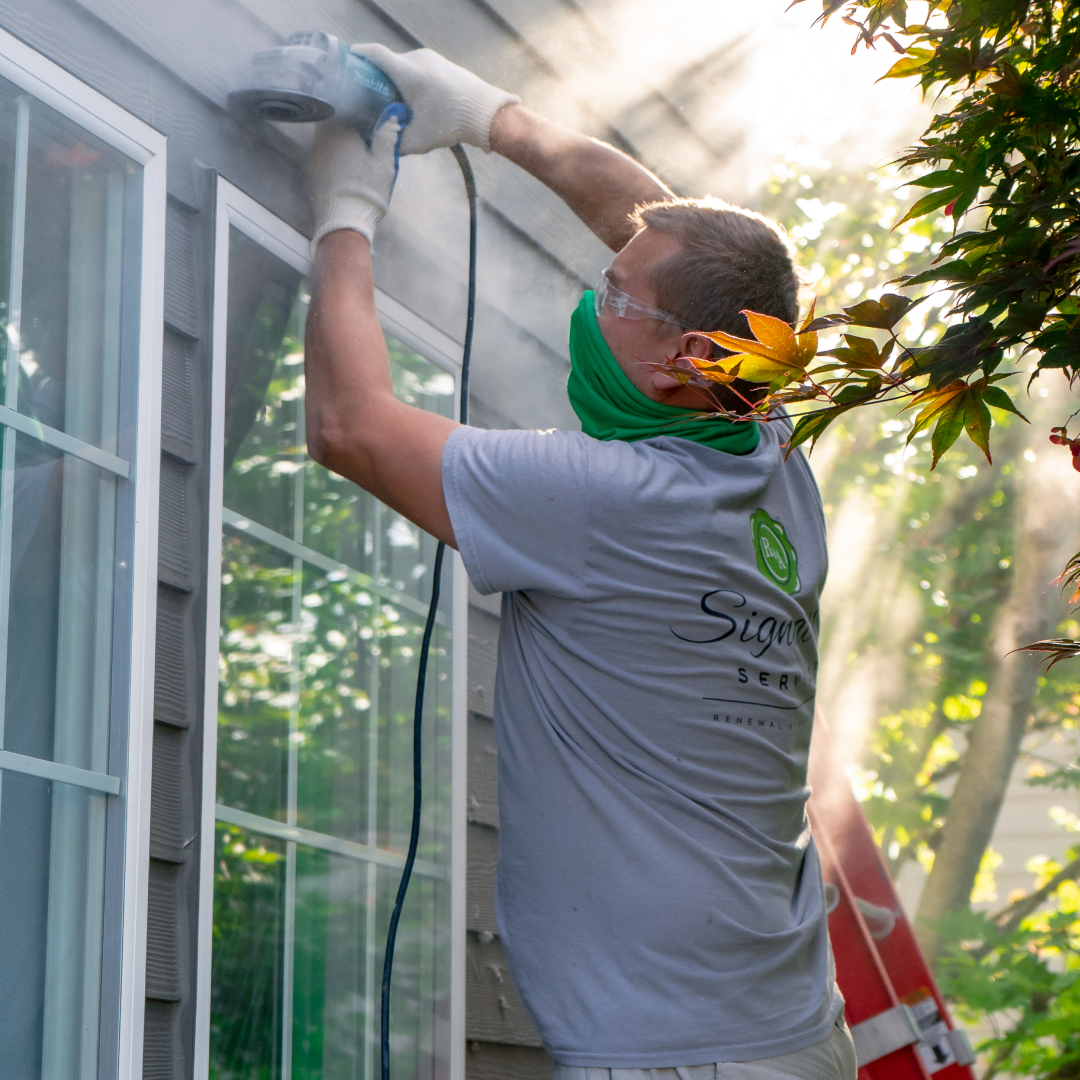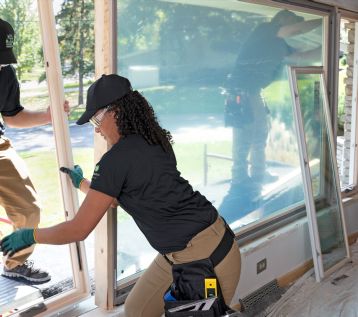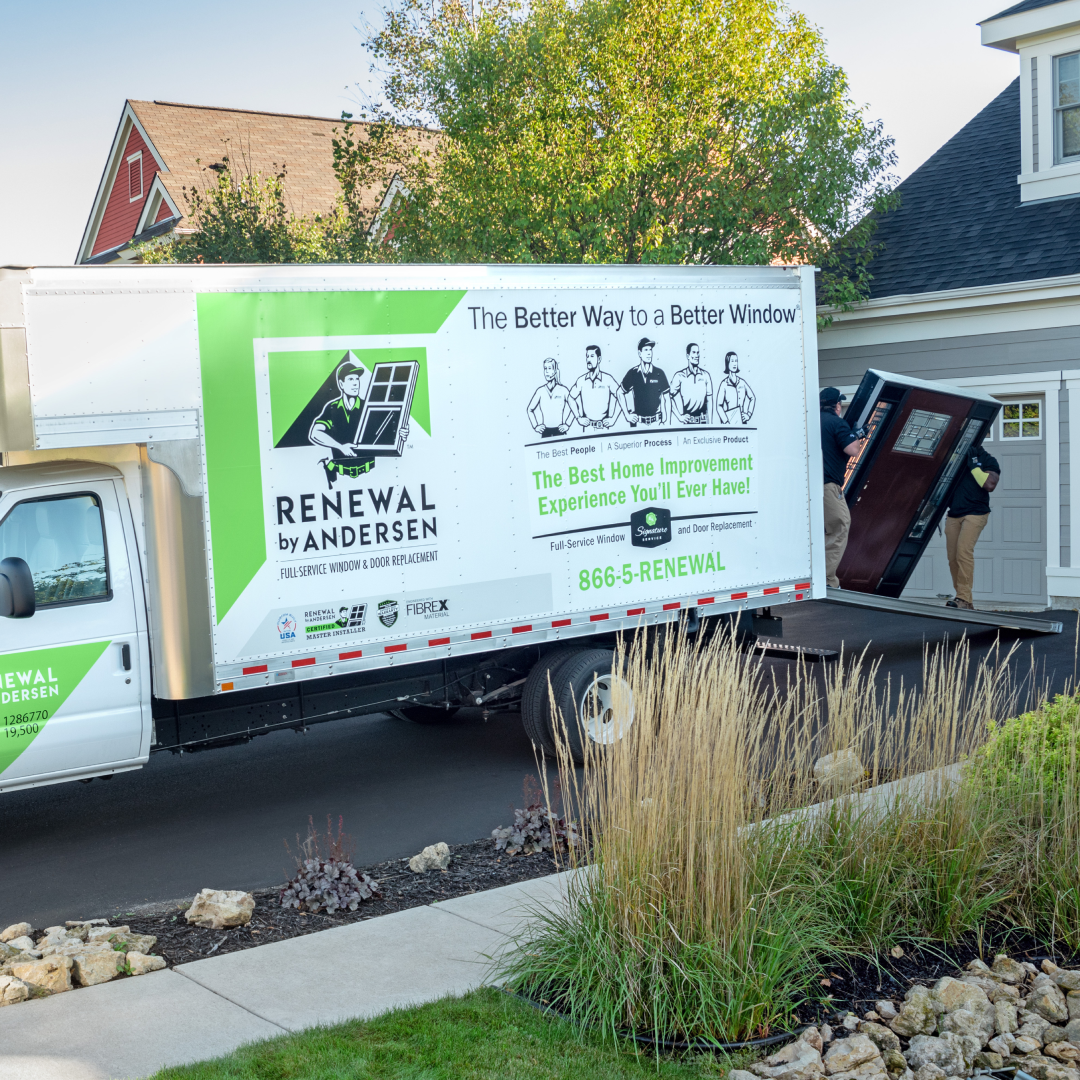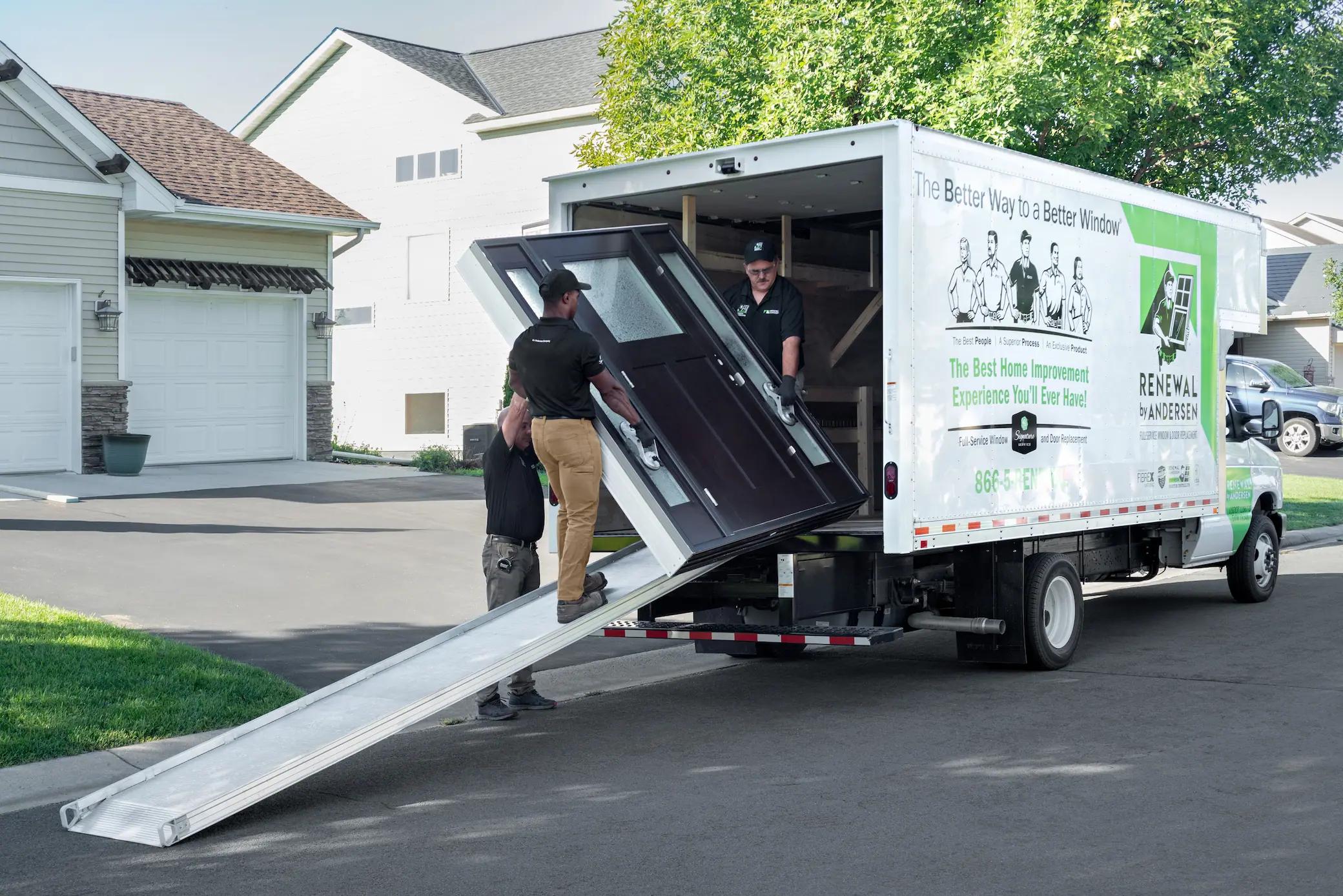When you're investing in window replacement, the quality of installation can make or break your project's success. While many homeowners focus on window materials and energy ratings, the expertise of your installer often determines whether your new windows will perform as expected for decades to come. Understanding professional installer certification – and what it means for your specific home environment – is crucial for making an informed decision that protects your investment.
Are Renewal by Andersen Installers Really Certified Professionals?

Yes, Renewal by Andersen employs Certified Master Installers who undergo rigorous training and certification requirements before they can work on customer homes. This certification program requires installers to demonstrate comprehensive knowledge of building codes, construction materials, and installation methods specific to window and door replacement. The
The Certified Master Installer program distinguishes professional installers from general contractors who may lack specialized fenestration expertise. Before certification, installers must prove their competency across multiple technical areas, including proper sealing techniques, structural considerations, and regional building code compliance. This comprehensive approach ensures that every installer understands not just the basics of window installation but the nuanced requirements that vary significantly based on local environmental conditions.
For homeowners in challenging climates, this expertise becomes even more critical. In hot, humid coastal environments, certified installers must understand moisture management techniques and proper flashing installation for hurricane-prone areas. In northern climates with extreme cold, they need expertise in cold-weather installation materials and techniques, understanding how temperature variations affect sealant performance. Desert climates require knowledge of heat-resistant materials and UV-resistant sealants, while high-wind regions demand advanced anchoring techniques and wind load calculations.
What Does Certified Master Installer Certification Actually Mean?
Certified Master Installer certification represents a comprehensive training program that goes far beyond basic installation skills. This certification ensures installers understand the complex relationship between window performance, installation quality, and long-term durability across diverse environmental conditions.
The certification process covers critical areas, including:
- Building code compliance and permit requirements specific to different regions and climate zones
- Material science and compatibility for various window frame materials and glass technologies
- Thermal performance optimization, including proper insulation techniques and thermal bridging prevention
- Moisture management system,s including vapor barriers and drainage plane integration
- Quality control procedures and installation inspection protocols
Regional environmental challenges require specialized knowledge that generic installers often lack. In coastal areas with salt spray and high humidity, certified installers must understand material selection that resists corrosion and proper installation techniques for impact windows. Northern regions facing severe winter conditions require expertise in preventing condensation issues. Urban environments with significant noise and air pollution demand specialized knowledge of acoustic performance optimization and air sealing techniques.
This depth of training ensures that Certified Master Installers can adapt their techniques to your home's specific environmental challenges, rather than applying a one-size-fits-all approach that may compromise long-term performance.
How Do I Verify My Window Installer Has Proper Certification?

Verifying installer certification involves more than simply asking if they're "certified" – it requires understanding what specific training and credentials they possess. Professional certification programs like Renewal by Andersen's Certified Master Installer program provide verifiable credentials that homeowners can research and confirm.
When evaluating installer certification, consider these key factors:
- Specific program requirements and training duration
- Ongoing education requirements to maintain certification
- Manufacturer-specific training for the products being installed
- Regional expertise relevant to your local climate and building codes
- Insurance and bonding that protect your investment
The most reliable way to verify certification is to work with companies that own their entire installation process, like Renewal by Andersen. This approach eliminates the uncertainty of subcontractor qualifications and ensures consistent training standards. Companies that manufacture, sell, and install their own products have the strongest incentive to maintain rigorous installer certification standards, as they stand behind both the product and installation quality.
Be wary of generic "certified installer" claims without specific program details. Many contractors may claim certification through brief online courses or minimal training programs that don't address the complex technical requirements of professional window installation.
Why Does Window Installer Certification Matter for My Home?
Professional installer certification directly impacts your window performance, energy efficiency, and long-term satisfaction with your investment. Research demonstrates that installation quality affects critical performance metrics, including air leakage rates, moisture resistance, and structural integrity – regardless of product quality.
Poor installation can lead to significant problems that vary by climate and environment. In coastal regions, inadequate installation results in accelerated moisture infiltration and salt air penetration that causes internal corrosion. Cold climates suffer from installation errors that create significant heat loss and condensation issues, leading to mold and structural damage. Desert environments experience excessive solar heat gain and material degradation from thermal cycling when installation techniques don't account for extreme temperature variations.
Professional certification ensures installers understand these regional challenges and apply appropriate techniques. Certified installers know how to:
- Optimize thermal performance through proper insulation and air sealing techniques
- Prevent moisture infiltration using appropriate vapor barriers and drainage systems
- Accommodate structural movement in older buildings or areas with soil settling
- Meet local building codes that vary significantly by region and climate zone
- Select appropriate materials for specific environmental conditions
The investment in certified installation pays dividends through improved energy efficiency, reduced maintenance requirements, and extended product lifespan. Most importantly, professional installation protects your warranty coverage, as many manufacturers require certified installation to maintain full warranty protection.
What Training Do Certified Window Installers Receive?

Certified Master Installers undergo comprehensive training that goes far beyond standard replacement methods. This specialized education is essential because the Renewal by Andersen installation process is fundamentally different, designed around the unique properties of our exclusive Fibrex® material and our proprietary sealing techniques. Our installers are trained as experts in handling the superior strength and rigidity of Fibrex® material frames and in using our own materials to create a durable, weather-tight seal. This ensures a precise, professional installation that is tailored to both our product and your home's specific needs.
The training curriculum typically includes:
- Construction materials science covering thermal expansion, moisture management, and material compatibility
- Building envelope integration, including proper flashing, air barriers, and insulation continuity
- Regional building codes and energy efficiency standards specific to different climate zones
- Advanced installation techniques for challenging situations like structural irregularities or historic buildings
- Quality control procedures, including installation inspection and performance testing
- Customer service standards ensuring respectful treatment of homes and clear communication
Regional specialization becomes crucial for optimal performance. Cold climate installations need expertise in energy conservation codes specifying structural load requirements for snow and ice loading. Desert regions require an understanding of cooling climate energy standards and extreme temperature cycling requirements.
This comprehensive approach ensures that certified installers can handle the unique challenges your home environment presents, rather than applying generic techniques that may compromise performance in your specific climate conditions.
Do Certified Installers Cost More Than Regular Contractors?

The long-term value of a professional installation comes from specialized expertise. Unlike a "jack-of-all-trades and master-of-none" general contractor, our Certified Master Installers are dedicated specialists who focus solely on window and door replacement.
Through rigorous training and years of experience encountering every type of installation scenario, they have honed their craft to a level of exceptional efficiency. This expertise means your project is not only done right the first time but is also completed on schedule, providing peace of mind and lasting performance.
Choosing certified installers for your window replacement project represents an investment in long-term performance, energy efficiency, and peace of mind.
Consider the total cost of ownership when evaluating installation options:
- Energy savings from proper installation can reduce heating and cooling costs for decades
- Warranty protection requires certified installation for many manufacturers
- Reduced maintenance from professional installation techniques
- Avoided repair costs from installation-related problems
- Increased home value from quality installation and warranty transferability
The cost differential becomes even more favorable when you consider the risks of improper installation. Installation defects can void manufacturer warranties, create ongoing energy losses, and require expensive remediation. In extreme cases, poor installation can lead to structural damage from moisture infiltration or inadequate weatherization.
How Does Installer Certification Affect My Window Warranty?
Professional installation certification directly impacts warranty coverage, with many manufacturers requiring certified installation to maintain full warranty protection. This requirement protects both manufacturer liability and homeowner investment by ensuring that product performance issues can be distinguished from installation defects.
Warranty implications vary significantly by environment and application. In coastal environments where environmental stresses accelerate potential failure modes, professional installation documentation provides necessary evidence for warranty claims related to hurricane damage or moisture infiltration. Cold climate warranty issues often relate to thermal performance and condensation control, where professional installation certification ensures proper techniques that prevent warranty voiding due to installation-related performance issues.
Renewal by Andersen's approach eliminates warranty confusion by owning the entire process from manufacturing through installation. This one-company accountability means there's no finger-pointing between manufacturer, retailer, and contractor when issues arise. The company stands behind both the product and installation, providing comprehensive warranty coverage that includes:
- Product materials, including frame materials and glass components
- Installation workmanship covering proper installation techniques and procedures
- Hardware and components ensuring long-term operational reliability
- Transferability that adds value if you sell your home without any paperwork, as the warranty is attached to the home
The warranty protection becomes particularly valuable in challenging environments where installation quality significantly impacts long-term performance. Professional certification provides the documentation and accountability necessary to maintain full warranty coverage throughout the product's lifespan.
Choosing certified installers for your window replacement project represents an investment in long-term performance, energy efficiency, and peace of mind. While the upfront cost may be higher than generic contractors, the combination of specialized expertise, warranty protection, and regional knowledge ensures optimal performance regardless of your local environmental challenges. When evaluating window replacement options, prioritize companies that own their installation process and employ rigorously trained, certified professionals who understand your specific climate and building requirements.
Schedule a Consultation
